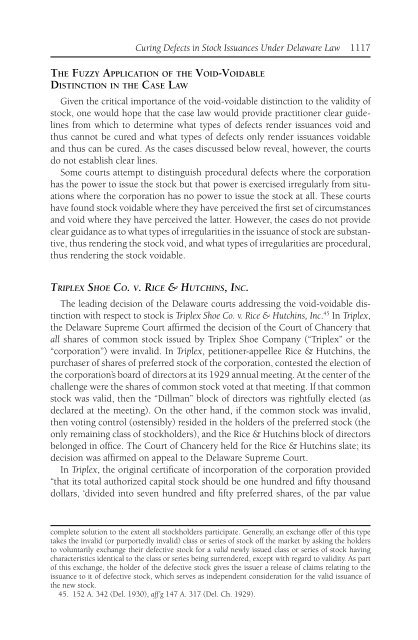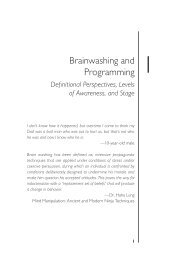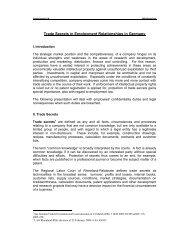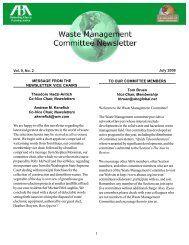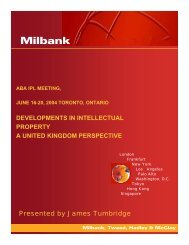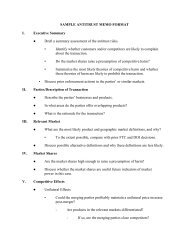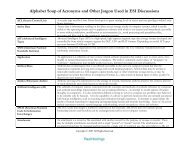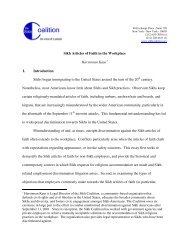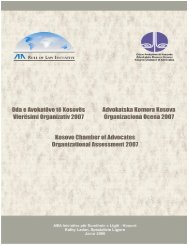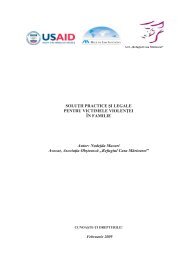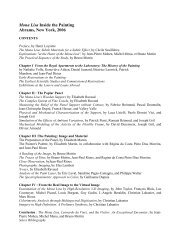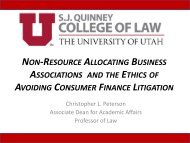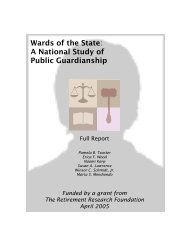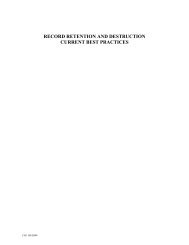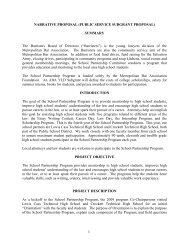Curing Defects in Stock Issuances - American Bar Association
Curing Defects in Stock Issuances - American Bar Association
Curing Defects in Stock Issuances - American Bar Association
Create successful ePaper yourself
Turn your PDF publications into a flip-book with our unique Google optimized e-Paper software.
<strong>Cur<strong>in</strong>g</strong> <strong>Defects</strong> <strong>in</strong> <strong>Stock</strong> <strong>Issuances</strong> Under Delaware Law 1117<br />
THE FUZZY APPLICATION OF THE VOID-VOIDABLE<br />
DISTINCTION IN THE CASE LAW<br />
Given the critical importance of the void-voidable dist<strong>in</strong>ction to the validity of<br />
stock, one would hope that the case law would provide practitioner clear guidel<strong>in</strong>es<br />
from which to determ<strong>in</strong>e what types of defects render issuances void and<br />
thus cannot be cured and what types of defects only render issuances voidable<br />
and thus can be cured. As the cases discussed below reveal, however, the courts<br />
do not establish clear l<strong>in</strong>es.<br />
Some courts attempt to dist<strong>in</strong>guish procedural defects where the corporation<br />
has the power to issue the stock but that power is exercised irregularly from situations<br />
where the corporation has no power to issue the stock at all. These courts<br />
have found stock voidable where they have perceived the fi rst set of circumstances<br />
and void where they have perceived the latter. However, the cases do not provide<br />
clear guidance as to what types of irregularities <strong>in</strong> the issuance of stock are substantive,<br />
thus render<strong>in</strong>g the stock void, and what types of irregularities are procedural,<br />
thus render<strong>in</strong>g the stock voidable.<br />
TRIPLEX SHOE CO. V. RICE & HUTCHINS, INC.<br />
The lead<strong>in</strong>g decision of the Delaware courts address<strong>in</strong>g the void-voidable dist<strong>in</strong>ction<br />
with respect to stock is Triplex Shoe Co. v. Rice & Hutch<strong>in</strong>s, Inc. 45 In Triplex,<br />
the Delaware Supreme Court affi rmed the decision of the Court of Chan cery that<br />
all shares of common stock issued by Triplex Shoe Company (“Triplex” or the<br />
“corporation”) were <strong>in</strong>valid. In Triplex, petitioner-appellee Rice & Hutch<strong>in</strong>s, the<br />
purchaser of shares of preferred stock of the corporation, contested the election of<br />
the corporation’s board of directors at its 1929 annual meet<strong>in</strong>g. At the center of the<br />
challenge were the shares of common stock voted at that meet<strong>in</strong>g. If that common<br />
stock was valid, then the “Dillman” block of directors was rightfully elected (as<br />
declared at the meet<strong>in</strong>g). On the other hand, if the common stock was <strong>in</strong>valid,<br />
then vot<strong>in</strong>g control (ostensibly) resided <strong>in</strong> the holders of the preferred stock (the<br />
only rema<strong>in</strong><strong>in</strong>g class of stockholders), and the Rice & Hutch<strong>in</strong>s block of directors<br />
belonged <strong>in</strong> offi ce. The Court of Chancery held for the Rice & Hutch<strong>in</strong>s slate; its<br />
decision was affi rmed on appeal to the Delaware Supreme Court.<br />
In Triplex, the orig<strong>in</strong>al certifi cate of <strong>in</strong>corporation of the corporation provided<br />
“that its total authorized capital stock should be one hundred and fi fty thousand<br />
dollars, ‘divided <strong>in</strong>to seven hundred and fi fty preferred shares, of the par value<br />
complete solution to the extent all stockholders participate. Generally, an exchange offer of this type<br />
takes the <strong>in</strong>valid (or purportedly <strong>in</strong>valid) class or series of stock off the market by ask<strong>in</strong>g the holders<br />
to voluntarily exchange their defective stock for a valid newly issued class or series of stock hav<strong>in</strong>g<br />
characteristics identical to the class or series be<strong>in</strong>g surrendered, except with regard to validity. As part<br />
of this exchange, the holder of the defective stock gives the issuer a release of claims relat<strong>in</strong>g to the<br />
issuance to it of defective stock, which serves as <strong>in</strong>dependent consideration for the valid issuance of<br />
the new stock.<br />
45. 152 A. 342 (Del. 1930), aff’g 147 A. 317 (Del. Ch. 1929).


